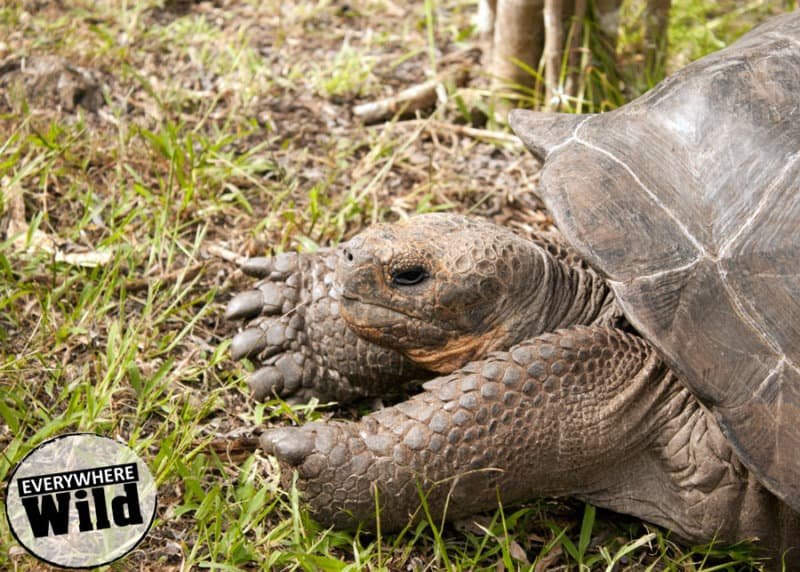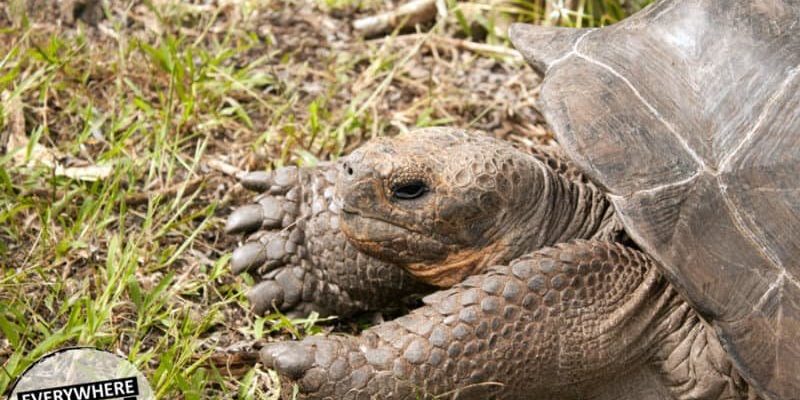
Tortoises belong to the order Testudines and are often grouped with turtles, though there’s a key difference: tortoises live primarily on land while turtles tend to live in water. From their incredible lifespan to their unique diets, here are ten surprising facts about tortoises that might just make you appreciate these marvelous creatures even more.
1. They Can Live for Over a Century
You might be surprised to learn that tortoises are some of the longest-lived animals on Earth. While most pet cats and dogs live for about 10 to 15 years, many tortoise species can easily surpass 100 years. For instance, the Aldabra giant tortoise can live to be over 150 years old!
But what does this longevity mean for their care? If you’re thinking about adopting a tortoise as a pet, you need to be prepared for a long-term commitment. These animals require a special habitat and diet to thrive. They’re not just cute little shells that you can forget about—these are living, breathing beings that can become beloved family members for decades.
2. Tortoises Are Herbivores
Here’s the thing: tortoises are primarily herbivores. Unlike their turtle cousins who might snack on fish or insects, most tortoises eat a variety of plants. This includes leafy greens, fruits, and even the occasional flower.
Their diet is crucial for their health. For instance, a lack of calcium can lead to shell deformities. You might be wondering how to keep a tortoise healthy—offering a balanced diet mimicking their natural feeding habits is key. Some owners even grow special tortoise gardens to have fresh, tasty greens ready to go!
3. They Have Unique Breathing Mechanisms
Believe it or not, tortoises have a unique way of breathing. Unlike many other animals, they cannot expand their rib cages. Instead, they use their abdominal muscles to help draw air into their lungs. It’s like they have their own built-in bellows!
This interesting fact highlights how tortoises have adapted to their environment. In a way, it’s a testament to their resilience and ability to survive in diverse habitats, from deserts to lush islands. Understanding this adaptation can help you appreciate how these creatures have thrived through changing climates and environments.
4. Their Shells Are A Big Deal
The tortoise shell isn’t just for show—it’s a vital part of their anatomy. Made up of over 50 bones, the shell is a protective shield and also plays a role in their overall health. It provides a barrier against predators and harsh environments.
Moreover, tortoises can feel sensations through their shells, since there are nerve endings connected to it. Ever wonder why a tortoise retreats into its shell? It’s a defense mechanism that helps it feel secure. Maintaining a healthy shell is also important, as any damage can lead to serious health issues.
5. They Don’t Regulate Their Body Temperature Well
Tortoises are what scientists call “ectothermic,” meaning they rely on their environment to regulate their body temperature. This can put them at risk in extreme temperatures. You might see a tortoise basking in the sun to warm up or retreating to the shade when it gets too hot.
This behavior affects their activity levels. In cooler months, they might hibernate to conserve energy, while in warmer weather, they become more active. Understanding their temperature needs is crucial if you’re planning to keep a tortoise as a pet, as improper temperatures can affect their health and activity levels.
6. They Can Be Quite Social
Contrary to the stereotype of being solitary beings, tortoises can actually exhibit social behaviors. In the wild, some species, like the Gopher tortoise, live in groups or colonies. They communicate through body language and even make sounds to express their feelings.
You might be surprised by how much personality a tortoise can have! They might not be as vocal as dogs, but they definitely have their quirks. If you have multiple tortoises, you’ll likely see them interacting or even engaging in playful behavior. Just remember that every tortoise is an individual; some might prefer solitude while others enjoy company.
7. Their Sense of Hearing Is Different
You might think of tortoises as having poor hearing, but that’s not quite true. They can hear sounds, but they do so in a different way than many animals. Tortoises pick up vibrations through the ground and can perceive lower frequencies better than higher ones.
This unique sense means they can detect changes in their environment, which is vital for their survival. If you’re ever near a tortoise and notice it reacting to slight movements or sounds, it’s likely using its keen sense to assess its surroundings.
8. Tortoises Have Incredibly Strong Jaws
Tortoises have surprisingly strong jaws that can crush hard plants and vegetables. If you’ve ever seen a tortoise munching on a tough leaf, you’ll understand how powerful their bite can be. They don’t have teeth, but their beaks are sharp and capable of biting through tough material.
This chomping ability is vital for their diet, allowing them to access a wide range of food. It’s a great example of how their biology is perfectly adapted to their herbivorous lifestyle. If you’re feeding a tortoise, be sure to offer a variety of textures to keep their jaws healthy and strong!
9. They Have Unique Mating Rituals
When it comes to romance, tortoises have some interesting courtship rituals. Males often engage in “head bobbing” to attract females, and they might even chase them around. During mating, males can be quite persistent, using their strength and size to show off.
Interestingly, after mating, female tortoises have the incredible ability to store sperm for several years, allowing them to fertilize their eggs long after a male has passed. This strategy helps ensure the survival of their young, even in uncertain environments or seasons.
10. They Are Endangered and Need Our Protection
Sadly, many tortoise species are facing threats due to habitat loss, climate change, and illegal poaching. Conservation efforts are crucial for their survival. If you want to help, consider supporting wildlife organizations that focus on tortoise protection or educating others about their plight.
Every little bit helps, whether it’s spreading awareness or even being mindful about where you get pet tortoises. Remember, these slow-moving creatures play a vital role in their ecosystems. Protecting them benefits not only them but the environment as a whole.
In conclusion, tortoises are more than just hard-shelled reptiles; they are complex creatures with fascinating lives. From their incredible lifespans to their unique social behaviors, there’s so much to learn and appreciate about them. Whether you’re a new tortoise owner or a curious nature enthusiast, understanding these ten surprising facts can deepen your appreciation for these wonderful animals. So, the next time you see a tortoise, remember that you’re looking at a creature with a story to tell, a world to navigate, and a life that’s anything but ordinary.

